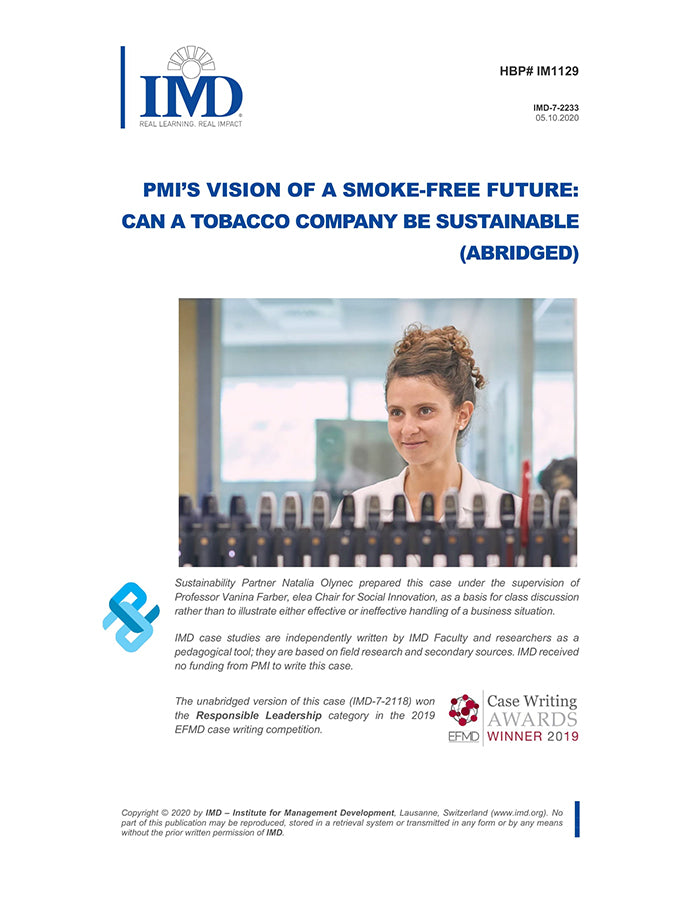PMI'S VISION OF A SMOKE-FREE FUTURE: CAN A TOBACCO COMPANY BE SUSTAINABLE (ABRIDGED)
受取状況を読み込めませんでした
Philip Morris International (PMI) CEO Andr Calantzopoulos announced in 2016 a radical pivot in the Marlboro cigarette manufacturer's strategy: the company would shift to "smoke-free" products in more than 180 countries around the world. One of these products was IQOS, a new "heat-not-burn" (HNB) device aimed at providing the world's over 1 billion "adult smokers with better options." The innovation of the products which, PMI claimed, were less harmful than cigarettes was welcomed by many investors and PMI. Calantzopoulos and PMI's Board of Directors believed that its sustainability strategy was critical to the company's long-term success. Nevertheless, convincing important stakeholders that a tobacco company could be part of the solution to rid the world of cigarettes by offering better alternatives was a different matter. The United Nations, World Health Organization (WHO), regulators, public health advocates, and some sustainable investors said that there was no safe level of use and no opportunity for effective engagement with tobacco companies. After a two-year wait, the US FDA issued an order authorizing the sale of IQOS in the US market of 40 million smokers. The FDA found that IQOS was "appropriate for the protection of health." PMI organized the 2020 Stakeholder Engagement Meeting in Lausanne, Switzerland to convene key stakeholders to engage with PMI's smoke-free business transformation.
【書誌情報】
ページ数:24ページ
サイズ:A4
商品番号:HBSP-IM1129
発行日:2020/10/4
登録日:2021/7/12


